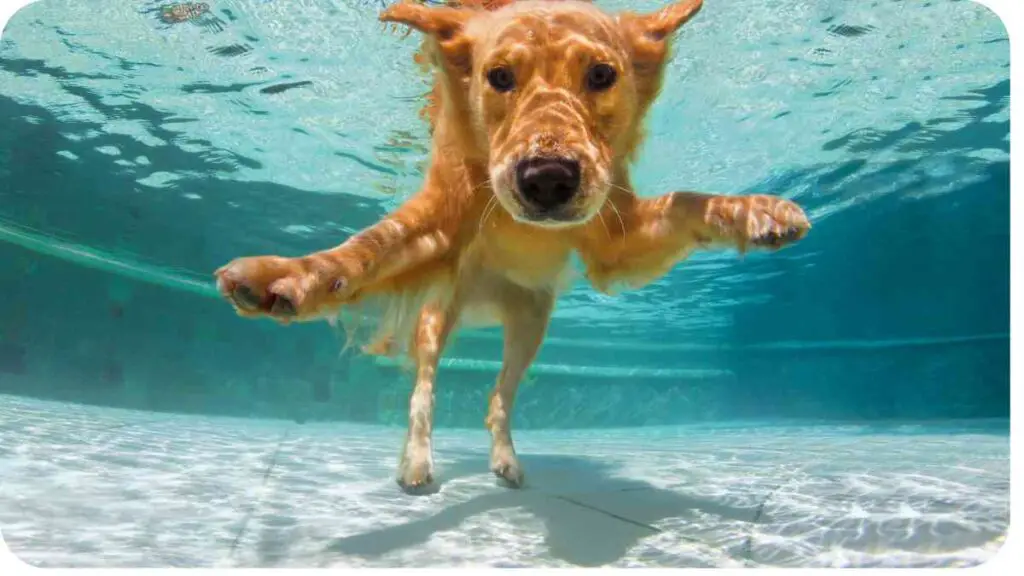Welcome to the world of the Yellow Labrador Retriever! If you’re considering adding a new furry friend to your family, you’re in for a treat. These lovable canines are known for their sunny dispositions, unwavering loyalty, and boundless energy.
In this comprehensive guide, we’ll explore everything you need to know about the Yellow Lab, from their history and physical characteristics to their temperament and health considerations. So, grab a cup of coffee, cozy up with your favorite blanket, and let’s dive into the delightful world of Yellow Labs!
| Takeaways |
|---|
| Yellow Labs are known for their sunny dispositions and make excellent family pets due to their friendly and affectionate nature. |
| Proper training and socialization from an early age are crucial for shaping a Yellow Lab’s behavior and ensuring they grow into well-mannered adults. |
| Regular exercise, mental stimulation, and a balanced diet are essential for keeping Yellow Labs healthy, happy, and well-adjusted. |
| While Yellow Labs are generally healthy dogs, they are prone to certain genetic health issues, so regular veterinary check-ups and preventive care are important. |
| With proper care and attention, Yellow Labs can bring endless joy and love into our lives, becoming cherished members of our families and beloved companions for years to come. |
2. History of the Yellow Labrador Retriever
| Year | Event |
|---|---|
| 19th Century | Originated in Newfoundland, Canada |
| 1800s | Used by fishermen to retrieve nets and fish |
| 19th Century | Crossbreeding with other retriever breeds |
| 20th Century | Recognition as a distinct breed by kennel clubs |
3. Physical Characteristics

Yellow Labs are known for their distinctive appearance, characterized by a sturdy build, broad head, and expressive eyes. Here’s a breakdown of their physical characteristics:
| Feature | Description |
|---|---|
| Coat | Short, dense, and water-resistant double coat |
| Color | Shades of yellow ranging from pale cream to fox red |
| Size | Medium to large-sized breed; males typically weigh 65-80 pounds, females 55-70 pounds |
| Height | Males stand 22.5-24.5 inches tall at the shoulder, females slightly smaller |
4. Temperament and Personality Traits
The sunny personality of the Yellow Labrador Retriever is what sets them apart from other breeds. They are known for their friendly demeanor, intelligence, and affectionate nature. Here are some key personality traits of Yellow Labs:
- Friendly: Yellow Labs are incredibly sociable and get along well with people of all ages, including children and strangers.
- Playful: With their boundless energy, Yellow Labs love to play fetch, go for long walks, and engage in interactive games.
- Intelligent: Ranked among the most intelligent dog breeds, Yellow Labs are quick learners and excel in obedience training and agility activities.
- Loyal: These dogs form strong bonds with their families and are fiercely loyal companions, always eager to please their owners.
- Eager to Please: Yellow Labs thrive on positive reinforcement and are highly motivated by treats and praise, making them easy to train.
- Adaptable: Whether you live in a bustling city apartment or a spacious countryside estate, Yellow Labs adapt well to various living environments.
Their sunny disposition and unwavering loyalty make Yellow Labs a popular choice for families, singles, and active individuals alike.
5. Training and Socialization

Training and socialization are crucial for shaping a Yellow Lab’s behavior and ensuring they grow into well-mannered adults. Here are some tips for training and socializing your Yellow Lab:
- Start Early: Begin training and socialization as soon as you bring your Yellow Lab puppy home. Early exposure to different people, pets, and environments helps prevent behavior problems later on.
- Positive Reinforcement: Use rewards such as treats, praise, and playtime to reinforce good behavior. Avoid harsh punishment, as it can damage the bond between you and your dog.
- Consistency: Establish clear rules and boundaries from the start and be consistent in enforcing them. This helps prevent confusion and ensures your Yellow Lab understands what is expected of them.
- Obedience Training: Teach basic commands such as sit, stay, come, and heel. Enroll your Yellow Lab in obedience classes or work with a professional trainer to refine their skills and improve their manners.
- Socialization: Expose your Yellow Lab to different people, dogs, sounds, and experiences to build their confidence and reduce the likelihood of fear or aggression towards unfamiliar stimuli.
- Patience and Persistence: Training a Yellow Lab requires patience, persistence, and a positive attitude. Celebrate small victories and be patient with setbacks, as consistency and repetition are key to success.
With patience, positive reinforcement, and plenty of love, your Yellow Lab will become a well-behaved and well-adjusted member of the family.
6. Exercise Needs
Yellow Labs are active and energetic dogs that require plenty of exercise to keep them happy and healthy. Here’s a breakdown of their exercise needs:
| Activity | Description |
|---|---|
| Daily Walks | A minimum of 30-60 minutes of brisk walking or jogging per day |
| Playtime | Engage in interactive games such as fetch, tug-of-war, or agility training |
| Swimming | Take advantage of their natural swimming abilities by allowing them to swim in safe, supervised environments |
| Mental Stimulation | Provide puzzle toys, training sessions, and obedience activities to keep their minds sharp |
7. Grooming Requirements
Despite their dense double coat, Yellow Labs are relatively low-maintenance when it comes to grooming. Here’s how to keep your Yellow Lab looking and feeling their best:
| Grooming Task | Frequency |
|---|---|
| Brushing | Weekly brushing to remove loose fur and prevent mats and tangles |
| Bathing | As needed, typically every 2-3 months or when they get dirty |
| Nail Trimming | Monthly nail trims to prevent overgrowth and discomfort |
| Ear Cleaning | Weekly ear cleaning to remove wax and debris and prevent ear infections |
| Dental Care | Daily brushing with a dog-friendly toothbrush and toothpaste to maintain oral health |
8. Health Considerations
While Yellow Labs are generally healthy dogs, they are prone to certain health issues that prospective owners should be aware of. Here are some common health considerations for Yellow Labs:
| Health Issue | Description |
|---|---|
| Hip Dysplasia | A hereditary condition where the hip joint doesn’t develop properly, leading to pain and mobility issues |
| Elbow Dysplasia | Similar to hip dysplasia but affecting the elbow joint, causing lameness and arthritis |
| Progressive Retinal Atrophy (PRA) | A degenerative eye disorder that can lead to vision loss and blindness |
| Exercise-Induced Collapse (EIC) | A genetic condition that causes a temporary loss of muscle control during intense exercise or excitement |
| Obesity | Yellow Labs have a hearty appetite and can easily become overweight if not fed a balanced diet and given enough exercise |
9. Feeding Guidelines

Proper nutrition is essential for maintaining your Yellow Lab’s overall health and well-being. Here are some feeding guidelines to keep in mind:
| Feeding Consideration | Recommendation |
|---|---|
| Quality Diet | Feed a high-quality commercial dog food formulated for medium to large breeds. Look for options with real meat as the first ingredient and avoid fillers and artificial additives. |
| Portion Control | Follow the feeding guidelines provided by the manufacturer based on your dog’s age, weight, and activity level. Monitor your Yellow Lab’s body condition and adjust portions as needed to maintain a healthy weight. |
| Meal Frequency | Divide their daily food intake into two meals to prevent overeating and aid digestion. Avoid free-feeding to prevent obesity. |
| Avoid Table Scraps | Resist the temptation to feed your Yellow Lab table scraps, as human food can be high in calories and unhealthy for dogs. Stick to their regular diet to maintain consistency. |
| Fresh Water | Always provide access to fresh, clean water to keep your Yellow Lab hydrated, especially after exercise or during hot weather. |
10. Living Arrangements
Yellow Labs are adaptable dogs that can thrive in various living environments, but there are some factors to consider when setting up their living arrangements:
| Living Arrangement | Considerations |
|---|---|
| House vs. Apartment | Yellow Labs do well in both houses and apartments, as long as they receive adequate exercise and mental stimulation. A fenced yard or access to a nearby park is ideal for outdoor playtime. |
| Indoor Space | Provide a comfortable indoor space with a cozy bed or crate where your Yellow Lab can rest and relax. Ensure they have plenty of room to move around and stretch their legs. |
| Outdoor Access | Yellow Labs enjoy spending time outdoors, so a securely fenced yard allows them to roam and explore safely. Be mindful of potential escape routes and hazards such as toxic plants or sharp objects. |
| Climate Considerations | Yellow Labs have a thick double coat that provides insulation against cold weather, but they can overheat in hot climates. Provide shade, plenty of water, and avoid exercising them during the hottest parts of the day. |
11. Yellow Labrador Retriever FAQs
What is the lifespan of a Yellow Labrador Retriever?
Yellow Labs typically have a lifespan of 10 to 14 years, though individual longevity can vary based on factors such as genetics, diet, exercise, and overall health care. Providing proper nutrition, regular veterinary check-ups, and a loving environment can help extend your Yellow Lab’s lifespan and ensure they live a happy, healthy life.
Are Yellow Labs good with children?
Yes, Yellow Labs are known for their gentle and affectionate nature, making them excellent family pets and great companions for children of all ages. They are patient, tolerant, and enjoy playing with kids, making them a popular choice for families looking for a dog that can bond well with children.
Do Yellow Labs shed a lot?
Yes, Yellow Labs have a dense double coat that sheds moderately year-round, with heavier shedding occurring during seasonal changes in the spring and fall. Regular grooming, including weekly brushing to remove loose fur, can help minimize shedding and keep your home clean. However, be prepared for some level of shedding with this breed.
How much exercise does a Yellow Lab need daily?
Yellow Labs are high-energy dogs that require a minimum of 30 to 60 minutes of vigorous exercise each day to keep them physically and mentally stimulated. Activities such as brisk walks, jogging, fetch, swimming, and interactive playtime are excellent ways to meet their exercise needs and prevent boredom.
Are Yellow Labs prone to any specific health issues?
While Yellow Labs are generally healthy dogs, they are prone to certain genetic health issues, including hip dysplasia, elbow dysplasia, progressive retinal atrophy (PRA), exercise-induced collapse (EIC), and obesity. Regular veterinary check-ups, a nutritious diet, proper exercise, and preventive care are essential for maintaining your Yellow Lab’s health and well-being.
12. Conclusion
Congratulations on completing your crash course in the sunny personality of the Yellow Labrador Retriever! We’ve covered everything from their rich history and physical characteristics to their temperament, training needs, and health considerations.
Whether you’re a seasoned Yellow Lab enthusiast or considering adding one to your family for the first time, I hope this guide has provided valuable insights and practical tips to help you better understand and care for these wonderful dogs.
Yellow Labs truly embody the best of both worlds: they’re playful and affectionate companions who are always ready for adventure, yet they’re also loyal and devoted family members who bring endless joy and love into our lives. Whether they’re fetching balls at the park, snuggling on the couch, or simply wagging their tails in greeting, Yellow Labs have a way of brightening even the darkest days with their sunny dispositions and infectious enthusiasm.
As you embark on your journey with your Yellow Lab, remember to cherish every moment together, embrace their boundless energy and zest for life, and always shower them with love and affection. With your guidance, patience, and care, your Yellow Lab will undoubtedly become a cherished member of your family and a beloved friend for years to come.
Thank you for joining us on this adventure into the world of Yellow Labrador Retrievers. Wishing you many happy wagging tails and unforgettable memories with your furry companion!
Until next time, keep smiling and wagging those tails!
Further Reading
- Hepper – Yellow Labrador: Explore more about Yellow Labrador Retrievers, including their history, characteristics, and care tips.
- DogTime – Labrador Retriever: Discover comprehensive information about Labrador Retrievers, including their personality, training, and health considerations.
- Snowy Pines White Labs – White vs. Yellow Lab: Learn about the differences between White and Yellow Labrador Retrievers and how to choose the right one for you.
FAQs
What are the main differences between Yellow and White Labrador Retrievers?
Yellow Labs are known for their sunny dispositions and varying shades of yellow coats, while White Labs have a solid white coat color. Both breeds share similar traits in terms of temperament and personality, but coat color is the primary distinguishing factor.
How can I socialize my Yellow Labrador Retriever?
Socialization is essential for Yellow Labs to develop into well-rounded and confident dogs. Start early by exposing them to different people, animals, environments, and experiences in a positive and controlled manner. Gradually increase exposure while monitoring their reactions and providing plenty of praise and rewards for good behavior.
What health issues are common in Yellow Labrador Retrievers?
Yellow Labs are prone to certain genetic health issues, including hip dysplasia, elbow dysplasia, progressive retinal atrophy (PRA), and exercise-induced collapse (EIC). Regular veterinary check-ups, a balanced diet, proper exercise, and preventive care can help mitigate these risks and ensure your Yellow Lab stays healthy.
How much exercise does a Yellow Labrador Retriever need?
Yellow Labs are active and energetic dogs that require a minimum of 30 to 60 minutes of vigorous exercise each day. Activities such as brisk walks, jogging, fetch, swimming, and interactive playtime are excellent ways to meet their exercise needs and keep them mentally stimulated.
Are Yellow Labrador Retrievers good family pets?
Yes, Yellow Labs are known for their friendly and affectionate nature, making them excellent family pets and great companions for children of all ages. They are patient, tolerant, and enjoy playing with kids, making them a popular choice for families looking for a dog that can bond well with children.

I’m Dr. Hellen James, I’ve spent my career working with dogs, and I’ve seen first-hand how important it is to understand the individual needs of each breed. I want to share my knowledge of dog breeds with you so that you can make informed decisions about which dog will be best for your household and lifestyle.

